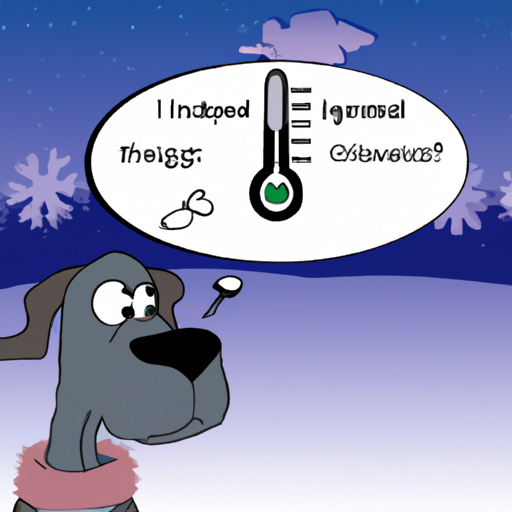Understanding Your Dog’s Physical Response
As a caregiver, you’re always on the lookout for any changes in your dog’s behavior. You might notice your dog shivering, and it can be a cause for concern. Shivering in dogs isn’t just limited to feeling cold. It can be a result of several factors, both physical and emotional. Below are some common reasons:
- Cold: Dogs, especially smaller breeds or those with short hair, can get cold easily.
- Excitement: Dogs often shiver from excitement or anticipation.
- Anxiety: Fear and anxiety can cause your dog to shiver as well.
Deciphering the Cause of the Shiver
It’s crucial to understand the cause of your dog’s shivering. This will enable you to provide the right help and comfort. Here’s how to decipher the reason:
- Check the environment: Is it cold? Is your dog wet? Are there any loud noises or unfamiliar people around?
- Observe your dog’s behavior: Is it acting differently? Has its eating habits or overall demeanor changed?
When to Seek Veterinary Help
While occasional shivering might not be a cause for alarm, consistent or severe shivering could indicate a more serious issue. These might include:
- Pain or discomfort
- Illness such as Distemper or hypoglycemia
- Certain neurological conditions
It’s always safe to consult with a vet if you’re unsure or worried about your dog’s shivering.
How to Comfort Your Shivering Dog
As a caregiver, your instinct is to comfort and protect. Here are some ways you can help your shivering dog:
- Provide warmth: A warm blanket or heated dog bed can help stave off the cold.
- Soothe anxiety: Gently petting your dog and speaking in a soft, reassuring voice can help calm its nerves.
- Distraction: If your dog is shivering from excitement, try to distract it with a toy or treat.
Preventive Measures to Avoid Shivering
Prevention is always better than cure. Here are some preventive measures you can take:
- Provide appropriate clothing during cold weather.
- Regular veterinary check-ups to catch any potential health issues early.
- Training and socialization to reduce fear and anxiety.
| Preventive Measures | Description |
|---|---|
| Clothing | Dog sweaters or coats for cold weather |
| Veterinary Care | Regular check-ups and vaccinations |
| Training | Socialization, obedience training |
FAQs
Q: Is shivering a sign of pain in dogs?
A: Yes, it can be. If your dog is shivering and behaving unusually, it could be experiencing pain.
Q: Can dogs shiver from excitement?
A: Yes, dogs can shiver when they are very excited or anxious.
Q: How can I comfort my shivering dog?
A: Try providing warmth, soothing your dog’s anxiety, or distracting it with a toy or treat.
Q: Should I take my dog to the vet if it’s shivering?
A: If the shivering persist or is accompanied by other signs of illness, it’s best to consult a vet.



